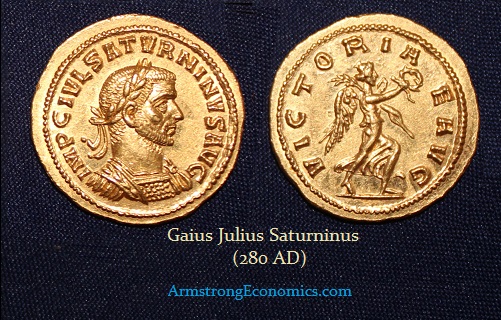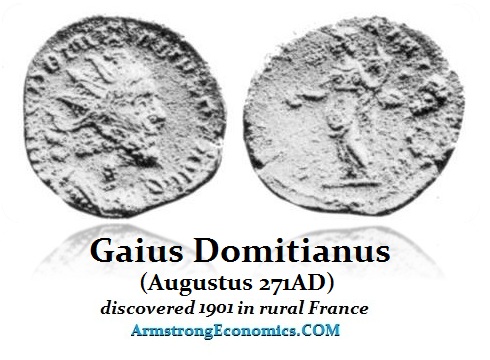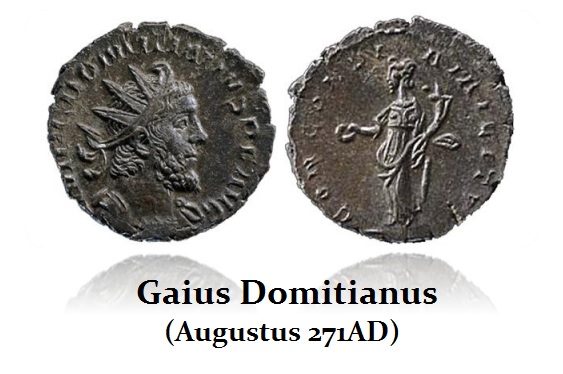To Live a Creative Life We Cannot Fear Being Wrong
QUESTION: Why do academics refuse to revise history when they are clearly wrong? This seems to be the same issue with their research on Global Warming.
YK
 ANSWER: They seem to dig their heels in and just refuse to admit they are ever wrong. They did that with Homer claiming it was a book written for children and could not be accurate history because it was written 600 years after events. It was Heinrich Schliemann which took Homer and followed it as a guidebook and discovered everything from Troy to Mycenae. They accused him as being a fraud and the jewels he photographed his wife wearing discovered in Troy they declared were fakes. He went on to discover every city Homer had written about. Not one of those academics got off their ass to prove that Homer was not real. They just pronounced it from above without lifting a finger.
ANSWER: They seem to dig their heels in and just refuse to admit they are ever wrong. They did that with Homer claiming it was a book written for children and could not be accurate history because it was written 600 years after events. It was Heinrich Schliemann which took Homer and followed it as a guidebook and discovered everything from Troy to Mycenae. They accused him as being a fraud and the jewels he photographed his wife wearing discovered in Troy they declared were fakes. He went on to discover every city Homer had written about. Not one of those academics got off their ass to prove that Homer was not real. They just pronounced it from above without lifting a finger.
 They did the same with the book Historia Augusta. They attributed right down to a monk and cited his name claiming he made it all up some 300 years after events. To this day, it will be cited and often noted as being unreliable. The academics did exactly the same thing and trashed this book because it listed 30 tyrants of the 3rd century Rome which included names they never heard of in any other source.
They did the same with the book Historia Augusta. They attributed right down to a monk and cited his name claiming he made it all up some 300 years after events. To this day, it will be cited and often noted as being unreliable. The academics did exactly the same thing and trashed this book because it listed 30 tyrants of the 3rd century Rome which included names they never heard of in any other source.
In this case, two names were verified by coins discovered. There were two gold aureii of Saturninus discovered in Egypt. They were found exactly where Historia Augusta described his attempt to seize the throne of Rome. Saturninus was a usurper hailed by the troops from Alexandria, Egypt. All that is known for sure is that he was raised to the position of Emperor by a mutinous army detachment formerly loyal to Emperor Probus. Saturninus must have been either a commander or a high-ranking civil servant. Speculation can point to Probus’s decision to partially demobilize the army and put them to work in constructing civic projects as a likely reason the rebellion.
In any event, Saturninus is said to have been very reluctant in his nomination. Pollio, a historian of the age, quotes him as greeting his new subjects “You have lost a useful commander and gained a wretched emperor”. He was probably murdered by his own troops, but that is not certain. One coin is in the Louvre and the other was acquired for my collection. The discovery of this coin put Historia August on the map as real.
 Then more recently, there was yet another discovery further validating Historia Augusta. The identity of yet another extremely obscure Emperor of the 30 tyrants has been confirmed further demonstrating how wrong the academics have been. In the year 1901, a coin bearing the legend IMP C DOMITIANVS PF AVG was discovered in a rural area of France. Immediately, the academics declared it was a forgery because it would have again proven them wrong. Then in 2003, an amateur metal detectorist discovered a clump of about 5,000 Gallic-era coins that were all stuck together. Early the following year, the British Museum announced the discovery that made headlines worldwide. This time there was no denying that the Emperor Gaius Domitianus (268/271AD) did in fact exist and that the earlier coin discovered in France had been genuine after all.
Then more recently, there was yet another discovery further validating Historia Augusta. The identity of yet another extremely obscure Emperor of the 30 tyrants has been confirmed further demonstrating how wrong the academics have been. In the year 1901, a coin bearing the legend IMP C DOMITIANVS PF AVG was discovered in a rural area of France. Immediately, the academics declared it was a forgery because it would have again proven them wrong. Then in 2003, an amateur metal detectorist discovered a clump of about 5,000 Gallic-era coins that were all stuck together. Early the following year, the British Museum announced the discovery that made headlines worldwide. This time there was no denying that the Emperor Gaius Domitianus (268/271AD) did in fact exist and that the earlier coin discovered in France had been genuine after all.
 Gaius Domitian was mentioned only in a brief passage of Historia Augusta as a general under Aureolus. He rose up as a rival to Gallienus (253-268AD) with a tenuous alliance to Postumus. He is credited here with defeating the better-known usurper Macrianus and the capture of his 30,000 men. However, the chronology offered presents a problem as his defeat can be conclusively shown to have occurred in 261, nearly a full decade prior to the Aureolus affair, so there is either a mix-up or the reference is to the wrong Macrianus.
Gaius Domitian was mentioned only in a brief passage of Historia Augusta as a general under Aureolus. He rose up as a rival to Gallienus (253-268AD) with a tenuous alliance to Postumus. He is credited here with defeating the better-known usurper Macrianus and the capture of his 30,000 men. However, the chronology offered presents a problem as his defeat can be conclusively shown to have occurred in 261, nearly a full decade prior to the Aureolus affair, so there is either a mix-up or the reference is to the wrong Macrianus.
There is another obscure reference by a 5th-century writer who mentions there was initial resistance to Aurelian coming to power in 270AD. He is said to have immediately arrested a man by the name Domitianus. Both coins were discovered inside the Gallic Empire. Historia Augusta confirms that events surrounding the downfall of the Gallic Emperor Victorinus in 271AD was violently contested. It is possible that Domitian rebelled in Cologne or Trier which does not comply with his capture by Aurelian‘s partisans.
Nevertheless, these two coins of Saturninus and Domitianus have unquestionably confirmed that the academics were wrong. There is just this reluctance to concede being wrong. It is that unwillingness that keeps society in the dark and this infects not merely history, Global Warming, but also economics. Here we see academics still preach Marxism, the disparity in income, no matter how many examples exist of this theory causing tremendous hardships, causing the deaths of millions, and retarding the growth of civilization – i.e. Venezuela.

